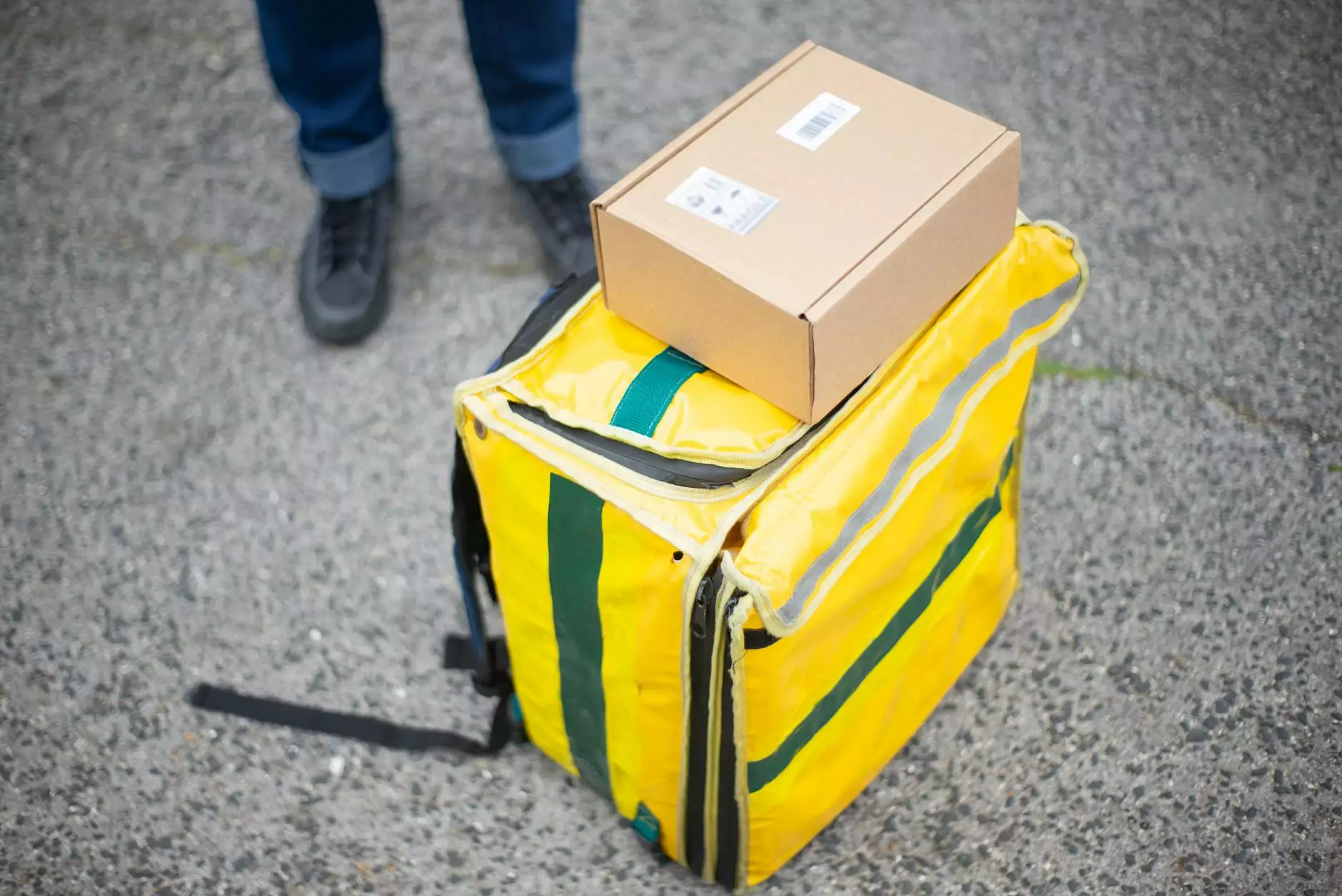Efficient Airways Freight Tracking: Essential for Modern Logistics

Airways freight tracking is a pivotal element in the world of logistics and transportation. In today’s fast-paced business environment, the ability to monitor shipments in real-time has become crucial for both shippers and customers. This comprehensive article delves into the various aspects of airways freight tracking, highlighting its importance, benefits, and the technology that powers it. We will explore how businesses can leverage tracking solutions to enhance operational efficiency and improve customer satisfaction.
The Importance of Airways Freight Tracking
In the global economy, effective freight management is vital. Here are several reasons why airways freight tracking holds tremendous significance:
- Visibility: Tracking provides businesses and customers with real-time updates on shipment status, enhancing visibility across the supply chain.
- Accountability: Enhanced tracking mechanisms ensure accountability among logistics providers, fostering trust and reliability.
- Efficiency: By monitoring shipments, companies can optimize logistics operations and reduce delays.
- Customer Satisfaction: Timely updates regarding freight status lead to improved customer service and satisfaction.
The Evolution of Airways Freight Tracking
Over the years, the methods used for airways freight tracking have evolved significantly. Traditional paper-based systems are now largely supplemented or replaced by advanced technological solutions. Here’s an overview of this evolution:
1. Traditional Methods
Initially, businesses relied on manual tracking systems that involved a lot of paperwork. Shippers needed to call airport loading docks or carriers to verify the status of shipments — a time-consuming and often inaccurate approach.
2. Development of Tracking Numbers
As logistics grew in complexity, the introduction of tracking numbers revolutionized the process. Each shipment was assigned a unique number that could be used to check its status online or by phone.
3. Real-Time GPS Tracking
Today, GPS technology allows for real-time tracking of shipments. This not only provides accurate location data but also enables predictive analytics to anticipate delays before they occur.
Benefits of Airways Freight Tracking
Integrating airways freight tracking into logistics operations provides numerous benefits that can significantly impact a company’s bottom line:
1. Enhanced Operational Efficiency
With real-time tracking, companies can streamline their operations by:
- Identifying bottlenecks in the supply chain.
- Improving routing and scheduling factors.
- Reducing waiting times for aircraft loading and unloading.
- Increasing overall throughput of freight movement.
2. Cost-Effectiveness
Efficient airways freight tracking can lead to significant cost savings by:
- Minimizing the costs associated with lost or misplaced shipments.
- Optimizing shipping routes to reduce fuel costs.
- Enhancing inventory management and reducing storage costs.
3. Improved Customer Relations
Real-time updates enable businesses to keep their customers informed about the status of their shipments, fostering trust and satisfaction. Customers appreciate being able to:
- Access tracking information anytime and anywhere.
- Receive alerts regarding shipment status changes.
- Communicate easily with customer service for support.
Technologies Empowering Airways Freight Tracking
The backbone of modern airways freight tracking lies in various technological innovations:
1. RFID Technology
Radio-frequency identification (RFID) tags are increasingly being used for tracking. These tags provide automatic identification and real-time tracking capabilities without the need for manual scanning.
2. Barcode Scanning
Barcode technology is another staple in freight tracking. Scanning barcodes upon shipment pickup and delivery allows companies to maintain an accurate record of movement and status changes.
3. Mobile Applications
With the advent of smartphones, mobile applications have become integral for both shippers and customers. Apps allow users to:
- Track shipments on-the-go.
- Receive push notifications regarding shipment status.
- Access helpline features for immediate assistance.
Implementing Airways Freight Tracking: Best Practices
To maximize the benefits of airways freight tracking, businesses should consider implementing several best practices:
1. Choose the Right Tracking System
Select a tracking system that fits your operational needs. Evaluate different service providers, their technologies, and their integration capabilities with existing systems.
2. Train Your Team
Ensure that your logistics team is well-trained in using the tracking system. Knowledgeable staff can effectively utilize the technology to improve operations.
3. Communicate with Customers
Proactively communicate with customers regarding tracking capabilities and provide them with necessary information to track their shipments efficiently.
4. Analyze and Optimize
Regularly analyze tracking data to identify areas for improvement in routing, delays, or cost management. Use this data to optimize logistics processes continually.
Challenges in Airways Freight Tracking
While the advantages of airways freight tracking are noteworthy, businesses should also be mindful of the potential challenges:
1. Data Security
As with any technology, data breaches pose a risk. Implement robust security measures to protect sensitive tracking information.
2. Reliability of Technology
Not all tracking systems are foolproof. Evaluate the reliability of the technology and ensure that back-up systems are in place in case of failures.
3. Integration Issues
Integrating new tracking solutions with existing logistics software can be complex. Ensure that your provider offers accessible integration options.
Future Trends in Airways Freight Tracking
As technology advances, we can anticipate several emerging trends that will shape the future of airways freight tracking:
1. Increased Use of Artificial Intelligence
AI can lead to smarter logistics systems that analyze historical data to predict challenges and optimize routing dynamically.
2. Blockchain Technology
Blockchain offers secure, transparent, and immutable records of all transactions and movements across the supply chain, ensuring all parties have access to essential tracking data.
3. Eco-Friendly Solutions
As sustainability becomes a priority, innovative tracking solutions that minimize carbon footprints will emerge, helping businesses calculate and offset their emissions effectively.
Conclusion
In conclusion, airways freight tracking is no longer a luxury but a necessity for businesses involved in logistics and transportation. It empowers companies to enhance visibility, optimize operations, and deliver superior customer service. By embracing modern tracking technologies and best practices, businesses can not only streamline their freight management processes but also gain a competitive edge in the global market.
At Cargobooking.aero, we believe in embracing innovation to transform logistics. The future of air freight tracking is bright, and businesses that leverage these advancements will pave the way for growth, efficiency, and customer satisfaction in an ever-evolving industry.



